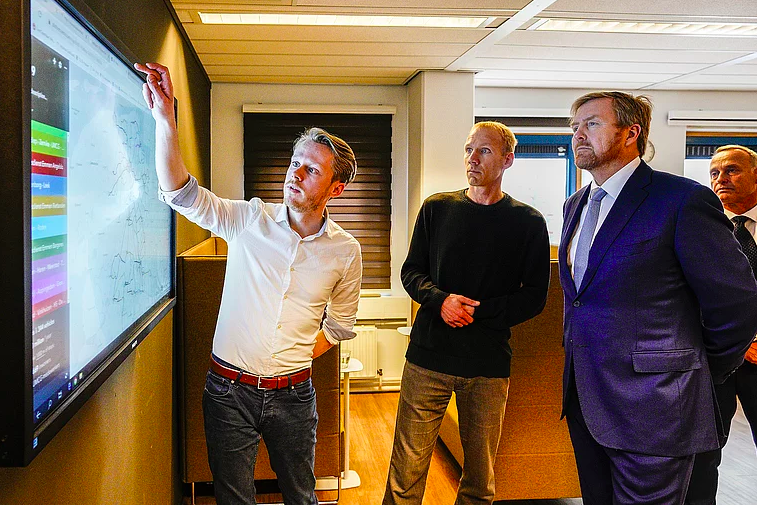Jonathan Andrews speaks to Tiffany Chu, co-founder and now Senior Vice President of start-up Remix, which was acquired by Via for US$100 million in March this year
In 2014 Tiffany Chu was a Fellow at Code for America when she and three others released a prototype to help citizens of San Francisco suggest better transit routes to the city’s transport agency. The planning tool was shared on Twitter and grabbed the attention of thousands within a few days.
“It was a nights and weekends project so it was mind blowing in the way that a simple prototype went viral,” Chu explains. “It was definitely an example of product-led growth.”
From this one planning tool Remix was born, as a collaborative mapping platform for transportation planning and decision-making. It quickly established itself as a fully-fledged company and now partners with 350 cities and agencies around the world.
Chu, who became chief operating officer, recalls back in the heady days of 2014 that marketing was more of a shared responsibility. By default and as a forward facing founder she took on most of this role.
What made her job less difficult was how visual the product was and how easy it was to use, unlike typical enterprise software which often takes months to set up, onboard, train and implement.
“We had one product which was around transit planning,” she says. “It works right out of the box and that’s the beauty of a lot of the consumer apps and consumer technology experiences that we’re not used to as a society. It became our claim to fame as we created a completely new category. Nothing like it existed before. I believe there are a few copycats out there in the market now so I guess that reflects the old saying, ‘Imitation is the sincerest form of flattery’.”
Initially Remix’s marketing focus was on the strategic planner sitting inside a transit agency but over the years Chu realised that what the team had built had more value to many other roles within the transit ecosystem.
It is in these areas where the company has seen a big uptick in usage. As a result, Remix has started devoting more marketing resources to people within the transport and planning world whose job is to collaborate.
“The transit priority planner who sits either in the transit agency or on the city side whose entire job is to increase bus speeds and priority lanes, along either specific corridors or across the city as a whole, they’re the ones who are almost single-handedly collaborating the most across the transit agency and city,” she says. “At Remix we have been focusing on how to break down those silos and break down those boundaries for a more seamless collaborative approach.”
Another company which saw the potential of partnering with Remix to facilitate this was on-demand and pre-scheduled transit operator Via. It acquired Remix for US$100 million in March this year in a deal whereby Remix maintains its independent brand.
What made the decision easier, says Chu who is now senior vice president, was that she and her co-founders respected Via and its “partnership forward” approach instead of “partnership for disruption” technique.
“Via has always been on our radar as probably one of the most innovative companies in the space,” she says. “We have a very strong planning portfolio and on the Via side their expertise is in operations. The thought of the two coming together just made so much sense. From a marketing perspective you can double your impact.”
Remix’s branding will remain and will become a product suite under the overall Via portfolio. Feedback from customers has been positive as they recognise the logical sense with many being clients of both companies.
“Customers have been over the moon and have said they hope to see an acceleration in our integration roadmaps,” Chu says. “We’ve already received a ton of requests for integration features between Remix and Via.”
This integration will include a certain number of products that Remix was developing and tweaking for transit scheduling, street design, mobility management, and a new geospatial suite.

The King of The Netherlands, Willem-Alexander, touring Remix
“We’re focused on tools which is a very robust space but also has its limits,” Chu says. “A lot of what Via does is to take those tools into action, to implementation, and roll out services specifically in the field. Our marketing has evolved and will continue to evolve to be much more holistic in its purview.”
Right now, Chu’s main focus is on ensuring the post-acquisition integration goes well. She runs the Remix team of 65 employees within Via where she is busy checking that the team is feeling comfortable within the context of the larger organisation, and charting the roadmap and the strategy for how Remix fits into the broader Via ecosystem.
She reveals this includes education internally with Via around what Remix does, what are the company’s strengths, and what they bring to the table. Conversely, she is also helping her team understand what Via’s strengths are to connect the dots so as not to “miss a beat” with customers and clients.
Although Chu didn’t study marketing at university, she says her background of urban design, architecture and planning and working as a researcher, writer and consultant has assisted when wearing a marketing hat.
“The design thread that I’ve been able to discover and pull through my different roles throughout my career is important,” she explains. “Design is ultimately not just about how something looks but what something does and how people experience it.”
All of the work that she has done, including as a consultant at Zipcar and researcher at MIT, was about a bigger idea and less about specific features or specific product. She recognises that while people want value from a product, if they don’t believe in the overall vision, they’re going to be less compelled to become a partner.
One way that has helped Chu to get people to believe in that vision is the old adage of showing not telling, particularly as a founder of a company, and is one method she will continue to use as Remix’s new future unfolds.
“We’re all very tired of companies tooting their own horns in a vacuum,” she explains. “You don’t want that to be the predominant voice, you want to celebrate your users and practitioners who are able to do their jobs better because your tool or platform exists. A lot of our marketing approach is to shine less of a light on Remix and Via and shine more of a light on the transit agencies and cities who are doing really innovative things with us.”

